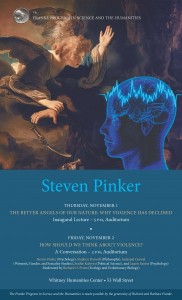CFP – Topoi: Embodiment and Empathy: Current Debates in Social Cognition
Deadline Submission: 15th March 2013
Topoi 2013 / 3 (September issue 2013)
Guest Editor:
Dr. Nivedita Gangopadhyay
Center for Mind, Brain and Cognitive Evolution
Ruhr-University Bochum
Germany
http://www.ruhr-uni-bochum.de/philosophy/mibra/gaeste_en.html
The interdisciplinary field of social cognition is currently witnessing the emergence of a number of theories which stress the importance of understanding the other’s embodied intersubjective engagement prior to gaining a theoretical understanding of the other as a “minded” being (e.g. Gallese 2001, 2003, 2005, Goldman & Gallese 1998, Gallagher 2005, 2008, Rizzolatti & Sinigaglia 2010, Zahavi 2010). These theories may be broadly divided into two groups regarding what enables a basic understanding of others as minded beings in embodied intersubjective interactions that do not necessarily draw upon mindreading by theorising. First, simulation theory approaches (e.g. Gallese 2003, 2005, 2007, 2009, Goldman 2006, Iacoboni 2009) claim that embodied simulation enabled by mirroring mechanisms underlies a primitive form of one’s understanding of the other as a minded being. Second, an emerging group of theories (e.g. Gallagher 2005, 2008, Zahavi 2008, 2010, 2012) derive inspiration from works in the phenomenological tradition to claim that one’s primary understanding of others as minded beings is enabled by a type of “direct experiential access” which needs neither any form of embodied simulation nor any theorising. To further complicate matters, both simulation theory approaches and phenomenological approaches claim that one’s ability to access other minds without theorising and inference is enabled by the phenomenon of empathy. However, there seems to be little agreement as to what exactly the term “empathy” stands for in recent debates in social cognition. There is some consensus that “empathy” as used in contemporary accounts of social cognition is to be distinguished from notions of sympathy and emotional contagion. But beyond this theories using the notion of empathy widely diverge as to what exactly the term “empathy” means and the nature of the phenomenon of empathy. The notion nonetheless plays a crucial role in grounding a non-theorising form of understanding other minds in embodied approaches to social cognition.
The debates centring around the notion of empathy in embodied approaches to social cognition bring to the fore, on one hand, questions about the nature of a basic form of understanding other minds prior to mentalizing by theorising (e.g. Decety & Meyer 2008, Decety 2011, de Vignemont & Singer 2006, Stueber 2006, Zahavi 2008, 2010, 2012), and on the other hand, questions about the scope and validity of embodied cognition approaches to social cognition including how best to situate embodiment within richer social understanding encompassing culture and context (e.g. Goldman & de Vignemont 2009, Gallagher & Hutto 2008, Hutto 2008, Menary 2010, Spaulding 2010).
Thus the special issue proposes to address questions such as the following: Read the rest of this entry »



